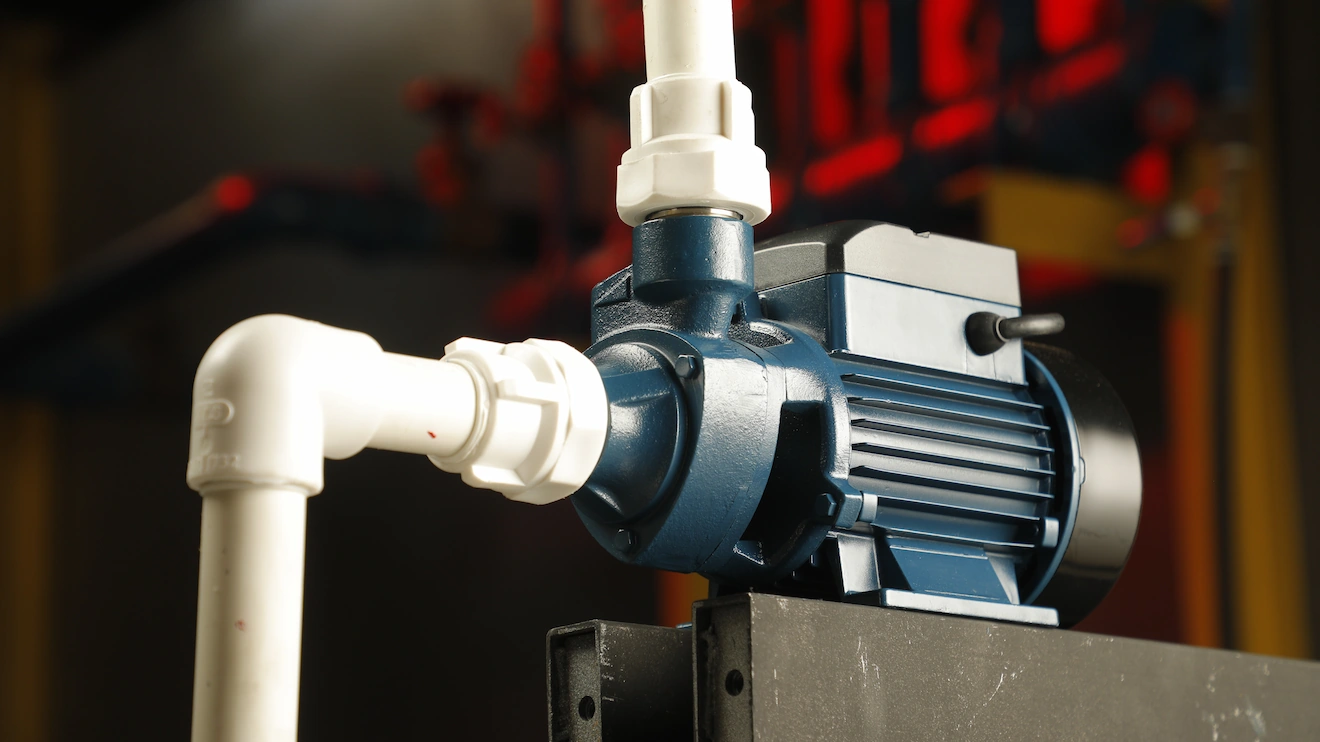Introduction
Centrifugal pumps are one of the most widely used types of pumps in various industries due to their versatility, efficiency, and simplicity. Their primary function is to convert mechanical energy from a motor into kinetic energy or velocity, which is then converted into pressure energy of the fluid being pumped. Here are some common applications:
1. Water Supply and Distribution
Centrifugal pumps are extensively used in municipal water supply systems. They ensure consistent water pressure and flow for residential, commercial, and industrial use. These pumps are also used in irrigation systems in agriculture to transport water over long distances and across varying terrains.
2. Sewage and Wastewater Management
In sewage treatment plants, centrifugal pumps play a crucial role in moving wastewater from residential and industrial areas to treatment facilities. They handle large volumes of water, including solid-laden fluids, making them essential for maintaining hygiene and environmental standards.
3. Agriculture
Agricultural applications often require large volumes of water for irrigation. Centrifugal pumps are ideal for this purpose due to their ability to handle varying flow rates and pressures. They are used to pump water from rivers, lakes, and reservoirs to fields and crops, ensuring efficient and effective irrigation.
4. Petroleum and Petrochemical Industries
Centrifugal pumps are vital in the oil and gas industry. They are used to transport crude oil, refined products, and petrochemicals through pipelines. Their design allows them to handle a wide range of liquids, including those with varying viscosities and temperatures.
5. Industrial Applications
In various manufacturing processes, centrifugal pumps are used to move chemicals, coolants, and other fluids. They are critical in processes such as cooling, heating, and the transfer of raw materials. Industries such as pharmaceuticals, food and beverage, and textiles rely on these pumps for their operations.
6. HVAC Systems
Heating, ventilation, and air conditioning (HVAC) systems use centrifugal pumps to circulate water and refrigerants. These pumps help maintain the desired temperature and humidity levels in residential, commercial, and industrial buildings.
7. Fire Protection Systems
Centrifugal pumps are an integral part of fire protection systems. They ensure a reliable supply of water to sprinkler systems, hydrants, and fire hoses, providing the necessary pressure and flow to combat fires effectively.
Classes of Centrifugal Pumps
Centrifugal pumps can be classified based on various criteria, including design, construction, and application. Here are the primary classes:
1. Radial Flow Pumps
Radial flow pumps are the most common type of centrifugal pumps. In these pumps, the fluid enters at the center of the impeller and is discharged radially outward at right angles to the pump shaft. They are suitable for applications requiring high pressure and relatively low flow rates.
2. Axial Flow Pumps
In axial flow pumps, the fluid flows parallel to the pump shaft. These pumps are designed for applications requiring high flow rates and low pressures, such as in irrigation, flood control, and circulating water in power plants.
3. Mixed Flow Pumps
Mixed flow pumps combine the characteristics of both radial and axial flow pumps. The fluid enters the impeller axially and is discharged in a direction that is partly radial and partly axial. These pumps are used in applications where a compromise between high flow rates and moderate pressures is needed.
4. Single-Stage Pumps
Single-stage pumps have only one impeller and are typically used for low to moderate head applications. They are simple in design and easy to maintain, making them ideal for domestic water supply, irrigation, and HVAC systems.
5. Multi-Stage Pumps
Multi-stage pumps have multiple impellers arranged in series. Each stage increases the pressure of the fluid, making these pumps suitable for high head applications. They are commonly used in boiler feed water systems, high-pressure cleaning, and water supply for high-rise buildings.
6. End Suction Pumps
End suction pumps have the suction and discharge nozzles at 90 degrees to each other. They are widely used due to their compact design and ease of installation. These pumps are commonly found in water supply systems, HVAC, and industrial processes.
7. Split Case Pumps
Split case pumps have a split casing design that allows easy access to internal components for maintenance and repair. They are used in applications requiring high flow rates and are commonly found in water treatment plants, industrial cooling systems, and municipal water supply.
8. Self-Priming Pumps
Self-priming centrifugal pumps are designed to handle air and create a vacuum that primes the pump. They are ideal for applications where the pump needs to be located above the water source, such as in sewage lifting stations and portable firefighting systems.
Conclusion
Centrifugal pumps are indispensable in numerous industries due to their adaptability, efficiency, and simplicity. Understanding their applications and classifications helps in selecting the right pump for a specific task, ensuring optimal performance and longevity. Whether it’s for water supply, sewage management, agriculture, or industrial processes, centrifugal pumps continue to play a crucial role in modern infrastructure and operations.
